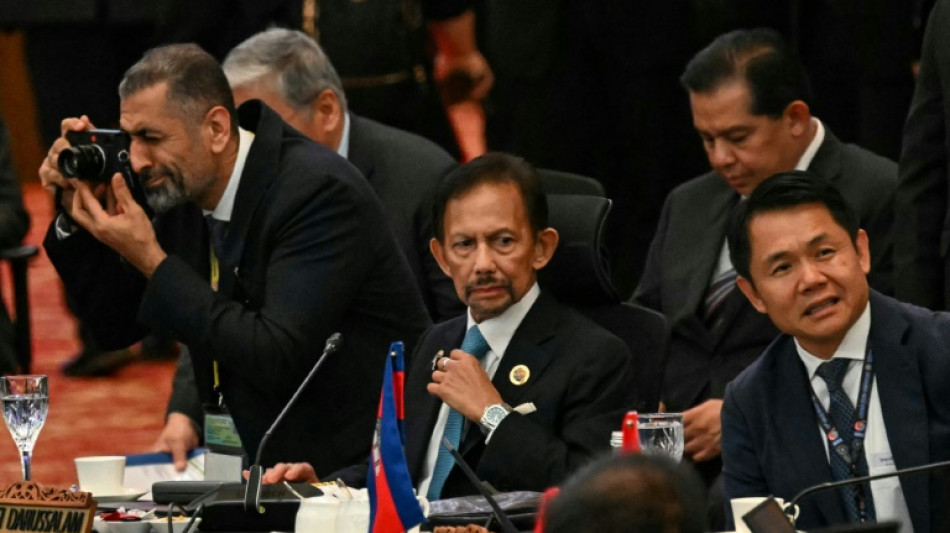
RBGPF
0.0000

Brunei's Sultan Hassanal Bolkiah, recuperating in a Kuala Lumpur hospital after being treated for "fatigue", is the world's longest-reigning living monarch -- and one of its richest people.
He ascended the throne at the tender age of 21 in 1967 in the tropical kingdom perched on the northern tip of Borneo in Southeast Asia.
Descending from a family that ruled Brunei for more than 600 years, the absolute monarch today at 78 still holds numerous positions in his oil-abundant state.
He is the country's prime minister, defence minister, finance and economy minister, as well as foreign affairs supremo.
Apart from his political duties, the sultan is also commander-in-chief of the Royal Brunei Armed Forces and the Inspector-General of the Royal Brunei Police Force.
Under his stewardship, Brunei became one of the world's richest countries and gained independence from Britain in 1984 after almost a century of colonial rule.
While the sultan has long lost the title of the world's richest man to tech billionaires, his wealth remains the stuff of legend.
The Guinness Book of World Records says his home, Istana Nurul Iman, which translated in English means "Palace of the Light of Faith" is the largest residential palace in the world.
- Lavish lifestyle -
The sultan is also renowned for owning the world's largest private car collection.
His gigantic fleet boasted at least 7,000 cars, valued at more than five billion dollars.
Parties thrown by him and younger brother Prince Jefri Bolkiah in the 1980s and 1990s were said to be extravagant, costing millions of dollars with guests hanging out with stars like Michael Jackson.
Brunei's living standards have soared to among the highest globally under his rule.
But his reign has also been marked by controversies including the introduction of tough Islamic laws legislating penalties such as the severing of limbs and death by stoning.
Brunei was the first country in East or Southeast Asia to introduce sharia law at a national level in 2019 after years of delays.
The harsh laws included death by stoning for adultery and gay sex and the amputation of a hand or foot for theft, which rights campaigners branded as "barbaric".
Those punishments, however, have not been actively enforced following international backlash.
Analysts said at the time the new code might be partly symbolic, as Sultan Hassanal was seeking to burnish his Islamic credentials among conservatives and win more support amid concerns about the economy.
The royal family was also deeply embarrassed by a sensational feud between Sultan Hassanal and Prince Jefri over the latter's alleged embezzlement of $15 billion during his tenure as finance minister in the 1990s.
During the scandal, salacious details emerged of the prince's jet-set, un-Islamic lifestyle, including allegations of a high-priced harem and a luxury yacht he owned called "Tits".
A.Novak--TPP